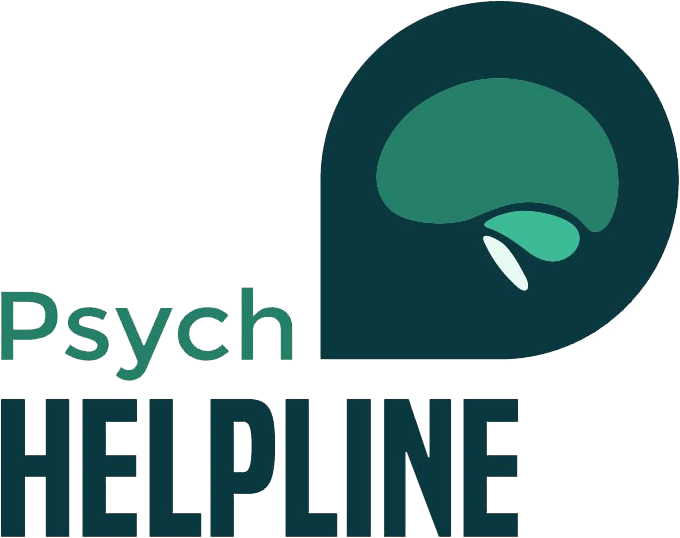Table of Contents
Life comes with its ups and downs one minute you’re on top of the world and the next minute you’re tumbling down. Grief and despair will always be a significant part of everyone’s life. Grief is unavoidable but staying in a rut over it is never the right answer. Tackling grief is a tricky art so not many can call it their forte. The fact of the matter is, that some of us are more emotionally prepared to tackle tumultuous events. Meanwhile, others require more time, help, and stamina to fight off any similar circumstances.
There can be no comparisons when it comes to grief because not all of us are wired the same way. When life and a compromised emotional state render us unable to tackle grief it is essential that we reach out. To helpful resources. Grief counseling is among the many helpful resources that can help an individual escape the woes of the past in an ideal manner. While attending grief counseling sessions you would work with a licensed counselor to find the cause behind your despair.
Once the actual problem is unearthed and addressed you will then proceed to find helpful ways of coping with the grief. Your counselor will also suggest ways of avoiding situations that could trigger that grief once again in the future. Here’s more on the essentiality of grief counseling and a few situations in which grief counseling is essential;
When Do People Seek Grief Counseling?
Before we proceed to the various scenarios in which grief counseling is suggested it is also essential to establish that not a single form of grief can be comparatively greater than another. This goes on to establish the fact that every person’s pain and grief matter and affect them in a varying manner.
So it would be gross miss justice to label one person’s grief to be of value all the while disregarding another person’s grief for seeming comparatively less intense. A good example of this would be how the death of a person affects two different people. Let’s assume that the death of a sibling affects one sibling in an intense manner and the grief continues to affect their future life.
Meanwhile, another sibling of theirs seems to be processing grief in a much more laid-back and civil manner. This whole scenario should not be concluded as one person’s inability to accept reality and another person’s ability to accept reality more swiftly. It just goes on to show that all of us deal with emotions and triggering happenings in our own ways. Now let’s move on to the multiple scenarios in which grief counseling can be of great help to a person;
- Death is among the most common or probable causes of grief. The death of a guardian, parental figure, close friend sibling, or significant other can be extremely hard to get over. Everyone needs time to adjust to new circumstances and in order to accept this ruthless yet undeniable aspect of life. Dealing with the grief of someone else’s death can be even harder if the death in question is untimely. For instance, the death of a young person in their prime is way more unexpected as compared to the death of a much older individual in their 70s or 80s. Thus the uncertain demise of an individual can be far harder to deal with as a person is usually emotionally unprepared for such circumstances. Grief counseling in such scenarios provides a person with the emotional backing they need most.
- Apart from the deaths of a loved one grief counseling can also help a person tackle the grief caused by an uncertain event. For instance, a person who has recently found out that he’s suffering from a rare disorder or a chronic illness might find himself unprepared for such circumstances. It is a moment of sorrow to discover that your life might be threatened by an uncertain anomaly that is totally out of your control. The fear of losing out on life and the realization that we are not immortal beings can push a person into a hole of existential dread. People struggling with chronic illnesses like cancer, and AIDS can greatly benefit from grief counseling when paired with a proper treatment plan for said anomaly. Grief counseling can also make the treatment phase much smoother by reducing the negative impact of undealt sorrow.
- People struggling with the sudden breakdown of a long-term relationship can also count on grief counseling for relief. For instance, if you’ve been dating your significant other for a long period of time breaking off this bond will surely take a toll on your mental and emotional well-being. The loss of said bond can make a person feel like they are empty inside. He or she might spend a great majority of their time fixating on the past and mourning something that doesn’t really exist anymore. In this case, grief counseling can help you in accepting the fact that it is time to move on. Those individuals who always remain too hooked on their ex-partners might find grief counseling useful as it sets them free and prepares them for a better tomorrow.
- The grief caused by the loss of immaterial things Can sometimes be as impactful as the grief caused by the loss of a person. Some common examples of this would be the loss of a work opportunity, losing out on academic achievement, a huge financial blow, relocating from a place you find yourself connected to, etc.
- Grief counseling can also help a person in tackling traumatic grief. Traumatic grief is the sort of grief that is caused by the trauma resulting from an accident or an unexpected event. A good example of this would be the grief caused by witnessing the death of a person in an accident. Survivors of abuse also struggle with traumatic grief.
6 Signs Indicating You Might Need Grief Counseling
- If you are still in denial regarding an event that resulted in grief in your case then you most definitely need grief counseling. Most people show this denial by refusing to accept the fact that something bad has happened to them. Denial comes as a natural response and can also act as a coping mechanism in that case. By denying the fact that something life-changing has happened to us we try and shield ourselves from the knowledge of its impact. One can misconstrue the actual events often occurring in order to remain in denial. For instance, survivors of sexual abuse often deal with the trauma and grief of those events by denying them entirely. That’s because they believe that undermining those events and the impact that have had on their lives would actually shield them from the memories of the past.
- You can’t really move on to a better tomorrow if you refuse to tighten the loose ties in the past. That’s the thing ignoring the past is not the solution to the issue you have to accept the past and let it go once and for all. If you’re hooked up on something that happened to you in the past you might not be able to give your 100% to the things that matter presently. For instance, if a person is still tackling the grief caused by a friend’s demise, he/she might not be able to give their best performance professionally. Additionally, they’ll also feel cut off from reality, it will continue to affect their mental well-being and the relationships they share with other individuals around them.
- The refusal to tackle grief can make you feel like you’re detached from your own sense of identity. One can remain in a constant state of unrest, often leading to various mental anomalies. Ignoring every chance of dealing with your grief can result in depression, anxiety, and self-destructive antics. No matter how happy they used to be in the past individual suicidal tendencies do have a high chance of appearing when they are in a compromised emotional state.
- People who have been so emotionally broken from grief are common victims of abuse because they are easier to control. Such individuals are a common target among narcissistic individuals.
- Grief can also implement a nihilistic mindset into a person’s worldview. Once they have seen grief from a closer distance they might feel like nothing else is actually worth it in life. Life sometimes loses its meaning to them and everything that they were actually passionate about loses its charm.
- If you have failed at finding solace from grief on your own naturally you’ll try and switch towards a coping mechanism that might not be healthy for you. It’s a common pattern among people who suddenly start indulging in unreasonable amounts of alcohol consumption and recreational drug use. Once they figure out that they can’t deal with the pain they try to find means to forget that pain by numbing their mind.
How Do I Persuade Someone To Seek Grief Counseling?
If someone you know has been struggling with grief yet refusing to seek help for it, of course, you might feel the need to step in. It’s hard to see someone you love struggling with an obvious anomaly yet refusing to seek out professional help for it. In a scenario like this, It’s best to take a laid-back approach and there are multiple reasons behind this. Taking a laid-back approach means that you are not over-fixating on the matter as that can sometimes annoy or aggravate the opposite party.
Yes, you can present this proposition by suggesting articles or studies that might help them understand the importance of grief counseling. Yet, in the end, they should be able to come to that decision on their own. If they decide to seek grief counseling to appease you or after being pressured by someone like you the conclusion of those counseling sessions might not be that positive.
Moreover, it is absolutely essential that you are not being coercive. Perhaps the person that you are trying to convince is just waiting for the right time. Yes, it’s your moral and emotional obligation to convince them in a laid-back manner but after that let them take the final lead.
Final Words
If someone you know has been tackling grief for a long period of time your response to that will also have an impact on their well-being. Even if the matter seems not big enough to you, you should be taking a more empathetic approach. Be more vocal about your support and help them realize that you were always with them. Additionally don’t neglect self-care while catering to the needs of others. Lastly, remember that people of all ages struggle with grief. No matter how younger or older a person is a tragic event can negatively affect anyone. So, don’t ask your kids to toughen up in the face of a tragedy. A large majority of people are into tiger parenting and their stern response can worsen a situation by leaving a long-term impact on their child’s psyche. Thus, you should provide your children with the space they need to grieve their loss, and when they require your attention help them as you see fit.







